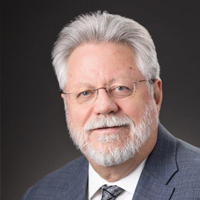
A bowhead whale can live for 200 years. An aldabra giant tortoise can live for 250 years. An Antarctic sponge can live for 1,500 years. How about you? How long can you live? Not that long, to be sure, but perhaps longer than you think.
We are on the leading edge of the Longevity Revolution. This is an exciting movement toward the “100+ year life” for many more people, as anticipated advances in medical biotechnology and the burgeoning field of geroscience become a reality. The task now is for people to overcome “anchoring bias” regarding their own estimated longevity.
Anchoring bias refers to a cognitive tendency to rely too heavily on current or past ways of dealing with a question or issue. With respect to your own personal longevity, anchoring bias refers to thinking about longevity in your family of origin — how long your parents and grandparents lived.
Also affecting anchoring bias are national average longevity statistics. We are likely aware that the average longevity in the USA is 76 for men and 81 for women. And we may be aware that both because of the opioid crisis and the COVID-19 pandemic, average longevity is temporarily going down, not up.
Overcoming anchoring bias about longevity requires a shift in one’s thinking based on what is coming down the pike in medical biotechnology and geroscience. Biotechnology, as is well known, has led to important drug discoveries and advances in genetic testing.
“Geroscience,” is a term that is not yet well known. It is a relatively new interdisciplinary approach that studies biological mechanisms of aging and their relationship to age-related diseases. The goal of geroscience is to fundamentally alter and slow down the aging process creating a leap in healthy longevity.
Further technological advances in Big Data and Artificial Intelligence are also going to facilitate the coming leap in healthy longevity as we move through the next decade or so. In their book, The 100-Year Life, Lynda Gratton and Andrew Scott give this advice: “You would be wise not to simply think of living healthily for 100 years, but rather consider this the very minimum you can expect.”
Here is how I am thinking about my own potential longevity. I turned 65 last month. I’m convinced that if I can make it to age 80 (in 2036) in good health then, with the help of coming medical advances, I could eventually make it past age 100. If I only live to be 100, I’ll have close to 12,700 days ahead of me. That is a lot of potential time for living, as well as many more years ahead of me for serving others in this work that I love — as a financial advisor. (More about financial advisors overcoming anchoring bias in their own retirement planning in my next column.
Now, I realize that I could die of cancer or of a heart attack. I could also die in a car accident or a plane crash or countless other ways that my life could come to an end. So, I get that death can take me way before age 100. But my point is that I can realistically hope that coming medical advances become a “tailwind” taking me to age 100 and beyond. This is a realistic possibility; no guarantees, of course.
The caveat: In order to benefit from the coming scientific tailwind, I need to get to age 80 in good-to-excellent health. This realization has led me to make changes in my diet and exercise program. For example, since establishing my “100-year” longevity resolve over a year ago, I’ve lost 30 pounds and have no intention of finding them.
On February 7, 2056, I hope to blow out 100 candles on my birthday cake and go for a long, pleasant walk on a sandy beach with my wife, Jill. Even if my longevity hopes are realized in triple digits, whenever death comes for me it will likely be too soon. And so these invitational words from Mary Oliver’s poem, “The Summer Day,” resonate with me and inspire me to continue to do my own life & financial planning and to serve others in the same way:
“Doesn’t everything die at last, and too soon?
Tell me, what is it you plan to do
with your one wild and precious life?”
Bradley Jenson, CFP®, CIMA®, AIF®, is a financial advisor with Duluth, Minn.-based Lake Superior Financial Services, Inc., which offers investment advisory services through Raymond James Financial Services, Inc. He is a coauthor of the forthcoming book “Joining the Longevity Revolution: For Advisors and Clients,” which is expected to be in print in 2022. Brad is also an ordained minister. He can be reached at 218-625-2430. Any opinions are those of Brad and not necessarily those of Raymond James.







